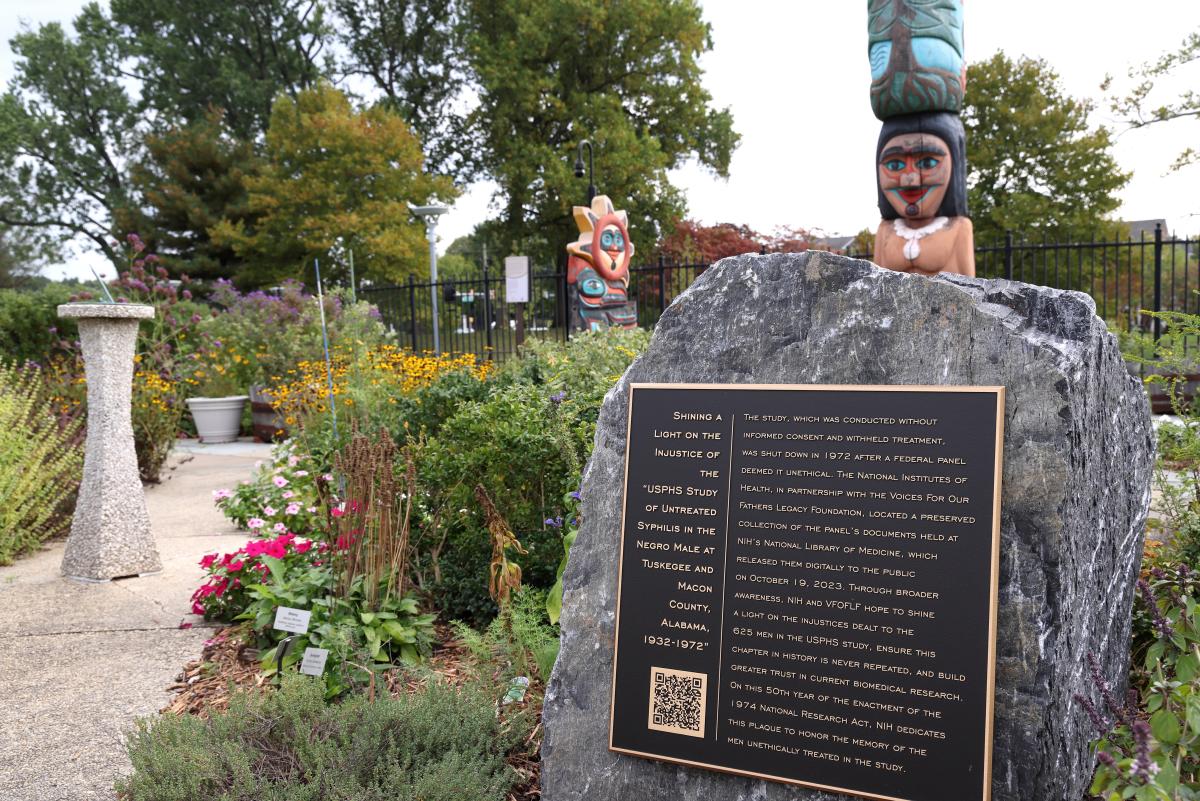Photographic Moment

CREDIT: CHIA-CHI CHARLIE CHANG
On September 19, NIH senior leadership and the Voices For Our Fathers Legacy Foundation (VFOFLF) commemorated the 50th anniversary of the National Research Act, which was created in response to the unethical practices of the U.S. Public Health Service Study of Untreated Syphilis at Tuskegee in Macon County, Alabama (1932–1972). The act established federal protections for human research participants and led to the creation of institutional review boards at research institutions across the country.
This commemorative bronze plaque was placed in the National Library of Medicine’s herb garden to honor the 625 Black men in the Tuskegee syphilis study.
The plaque reads:
“Shining a light on the injustice of the USPHA Study of Untreated Syphilis in the Negro male at Tuskegee and Macon County, Alabama, 1932-1972. The study, which was conducted without informed consent and withheld treatment, was shut down in 1972 after a federal panel deemed it unethical. The National Institutes of Health in partnership with the Voices For Our Fathers Legacy Foundation, located a preserved collection of the panel’s documents held at NIH’s National Library of Medicine, which released them digitally to the public on October 19, 2023. Through broader awareness, NIH and VFOFLF hope to shine a light on the injustices dealt to the 625 men in the USPHS study, ensure this chapter in history is never repeated, and build greater trust in current biomedical research. On this 50th year of the enactment of the 1974 National Research Act, NIH dedicates this plaque to the memory of the men unethically treated in the study.”
The QR code on the plaque links to NLM’s digitized archival records from the study.
Read more about the September 19 event here.
This page was last updated on Tuesday, November 5, 2024
